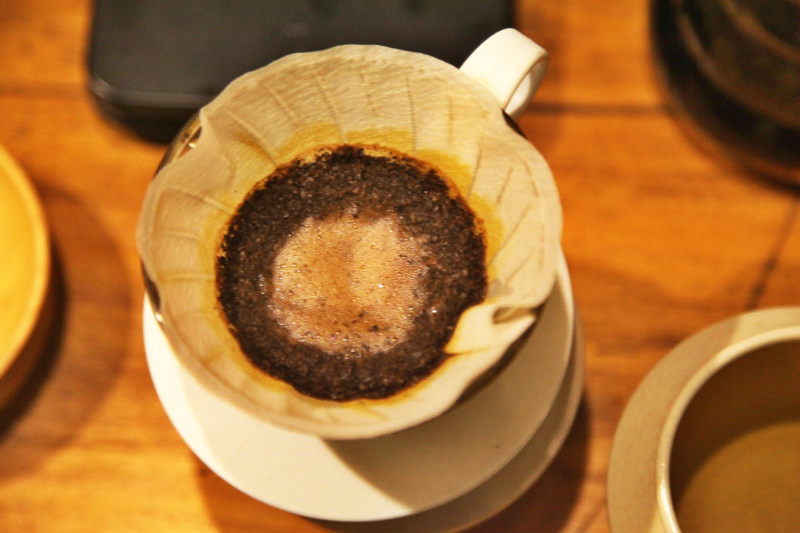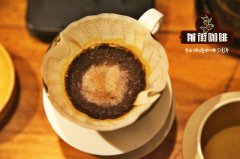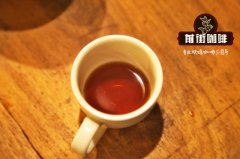Kochere Kochere Boji Kebele Poli Israel Degfa

Professional coffee knowledge exchange more coffee bean information please follow the coffee workshop (Wechat official account cafe_style)
Yega Xuefei washes half a pound of coffee beans from Poli Village, Cochel Town.
A rich and changeable water wash Yejia Xuefei! Light and elegant flowers mixed with vanilla flavor, the entrance has a sweet taste of sugar cane, with kumquat, lemon peel, complex acid and vitality!
▲ production Information:
Country: Ethiopia / Ethiopia
Producing area: Yega Sheffield Cochel town / Yirgacheffe Kochere Woreda
Producer: Poli Village small Farmer & Israel Degfa
Altitude: 1800 Murray 2200 meters
Variety: Heirloom
Treatment: full washing / Full Washed
Baking degree: medium and shallow baking
On the left side of ▲ is the front of the sack, from top to bottom: Kerchanshe Trading PLC is the exporter, Washed marks this batch as washed, Yirgacheffe Grade1 indicates the highest level of ECX, Yirgacheffe Kochere represents from the town of Cochel, Crop 2017 indicates the production season, the following batch number allows us to trace through the exporter the source of production is "Poli Village Boji Kebele" ▲ on the right is the importer information, Linking Coffee is our main origin trading partner!
The Chinese characters marked by the importer of ▲ once again indicate the source of production of this batch of raw beans. Kochere Woreda is one of the eight towns officially announced by ▲ in Ethiopia, with a population of about 150000. Among the more than a dozen villages in the town, Boji Kebele is very densely populated, with more than 18000 residents.
▲ Ethiopian sacks are not as beautiful as those in Central America, but they also have moisturizing plastic bags, which are standard for boutique grade coffee and can be moisture-proof and fresh-keeping.
The color of ▲ is fresh and green, and these raw beans are bigger than the average Yega and look nutritious!
▲ washing is the most traditional method in fine coffee. Coffee cherries are soaked in the sink for 24 murmurs for 36 hours, then fully fermented, then washed by water to remove pectin from the surface, and finally the raw beans with pods are obtained.
▲ coffee beans with pods are placed on an elevated net bed, dried in the sun, and the final appearance is beige.
▲ Poli Village (Boji Kebele) is located in the town of Kochere Woreda, about 15 kilometers away from the busiest town in the producing area. ▲ in 2014, Israel Degfa set up a private processing plant here, only 1.5km from the famous Biloya cooperative, and farmers were free to choose to sell coffee cherries to the cooperative or the processing plant, so the private processing plant officially became a competitor to the cooperative.
▲ Israel Degfa holds regular meetings with farmers, in addition to providing planting technical support, but also sets quality standards, "high quality = high price", to encourage farmers to pursue quality improvement! ▲ currently has 884 farmers in Poli Village joining the production team of the Israel Degfa processing plant.
▲ started a cooperative movement in Ethiopia in 2000, which not only promoted the rise of boutique coffee, but also took care of the lives of more small coffee farmers. ▲ has 25 cooperatives under the Yega Sheffield Cooperative Union (YCFCU) alone, most of which are set up in villages. With the growth of cooperatives and the rapid increase in output, the problem of quality gap between different batches began to appear. This has also spawned another wave of private processing plants in pursuit of higher quality. (the blue dots in the picture are cooperatives and the red dots are private processing plants)
▲ Israel Degfa (the third person from the right in the picture), as a second-generation coffee farmer, not only deeply understands the hard work and plight of small farmers, but more importantly, he has an international view-Remove quantity to Quality-- replaces high output with high quality. His idea coincides with the trend of boutique coffee. ▲ in 2013, Israel Degfa established Kerchanshe PLC to obtain a coffee bean export license, and since then has a dual identity as a producer and exporter, greatly meeting our Traceabitily requirements as consumers.
▲ Israel believes that healthy seedlings are the first step in the successful cultivation of coffee. Cultivating excellent varieties with good flavor and strong disease resistance can make coffee farmers make enough profits. Only in this way will small farmers be more willing to invest in the coffee industry. Such a virtuous circle!
▲ Kerchanshe PLC has a nursery in Kochere where about 500000 coffee seedlings are cultivated and provided to local coffee farmers free of charge.
▲ Israel Degfa's international outlook comes from not only frequent visits to major boutique coffee fairs around the world, but also occasional visits to bean bakers in consumer countries to understand the demand for boutique coffee in the international market. (the picture shows Israel Degfa visiting Drop Coffee, a well-known baking bean manufacturer in Sweden)
● tip: are you confused about Ethiopian English place names? Because the official language of Ethiopia, Amharic Amharic, does not have a definite Roman alphabet conversion plan, the English place names we see often change. For example, Poli Village can be written as Boji, Bojie or Bolji, which is actually the same, including the well-known Yegashafi can also be written as Yirgacheffe, or Yirgachefe.
Important Notice :
前街咖啡 FrontStreet Coffee has moved to new addredd:
FrontStreet Coffee Address: 315,Donghua East Road,GuangZhou
Tel:020 38364473
- Prev

Information introduction of Yega Xuefei Coffee Wanago Weinaguo Town Cooperative Omerdu Omado processing Plant
Professional coffee knowledge exchange more coffee bean information please follow coffee workshop (Wechat official account cafe_style) Origin: Ethiopian Manor name: Ethiopia Yega Feiwanago Town Omado treatment Q1 treatment: sun-dried beans: 100% Arabica ancient superior original species flavor: strawberry biscuit pineapple tea acidity bright aftertaste long roasting: shallow roasting
- Next

Introduction to the story of Yejia Coffee Gedeo Tore Station Tori processing Plant in Gaidio area
Professional coffee knowledge exchange more coffee bean information please follow the coffee workshop (Wechat official account cafe_style) Yirgacheffe in southern Ethiopia (Gedeo) region, due to the special flavor of Yirgacheffe coffee with a unique style and widely loved, so the product classification has its own style, in the global fine
Related
- Detailed explanation of Jadeite planting Land in Panamanian Jadeite Manor introduction to the grading system of Jadeite competitive bidding, Red bid, Green bid and Rose Summer
- Story of Coffee planting in Brenka region of Costa Rica Stonehenge Manor anaerobic heavy honey treatment of flavor mouth
- What's on the barrel of Blue Mountain Coffee beans?
- Can American coffee also pull flowers? How to use hot American style to pull out a good-looking pattern?
- Can you make a cold extract with coffee beans? What is the right proportion for cold-extracted coffee formula?
- Indonesian PWN Gold Mandrine Coffee Origin Features Flavor How to Chong? Mandolin coffee is American.
- A brief introduction to the flavor characteristics of Brazilian yellow bourbon coffee beans
- What is the effect of different water quality on the flavor of cold-extracted coffee? What kind of water is best for brewing coffee?
- Why do you think of Rose Summer whenever you mention Panamanian coffee?
- Introduction to the characteristics of authentic blue mountain coffee bean producing areas? What is the CIB Coffee Authority in Jamaica?

